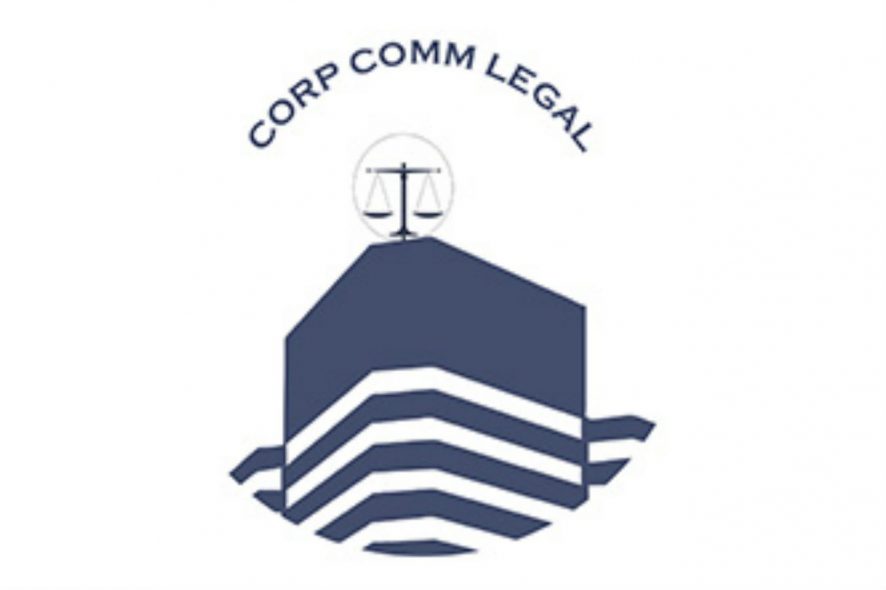The Companies Act, 2013 provides for a robust process of deregistration and restoration of companies in the Register of the Registrar of Companies. The Central  Government has also launched the Condonation of Delay Scheme, 2018 (CODS) providing an opportunity to non-compliant companies to comply with the return filing provisions of the Companies Act. The CODS is of significant importance to companies desirous of correcting the non-compliances to avoid being struck off by the Government.
Government has also launched the Condonation of Delay Scheme, 2018 (CODS) providing an opportunity to non-compliant companies to comply with the return filing provisions of the Companies Act. The CODS is of significant importance to companies desirous of correcting the non-compliances to avoid being struck off by the Government.
The significance of the aforesaid is heightened by the recent elimination by the Central Government of few lakhs of shell companies in its fight against black money.[1] At the same time High Courts, Company Law Boards and National Company Law Tribunals (NCLTs) have passed several major decisions in recent years which have significant impact on the remedies available against the deregistration of a company by the Registrar. This article analyses the provisions of the Companies Act, the CODS and some decisions having a bearing on this important aspect of company law in India.
Deregistration of companies and restoration
Sections 248 to 252 of the Companies Act, 2013 stipulate the process of deregistration of a company from the Register of Companies (RoC). Section 560 of the erstwhile Companies Act, 1956 provided for a Fast Track Exit mode for defunct companies to voluntarily apply for deregistration. Similar provisions for voluntary deregistration have been provided under the Companies Act, 2013. The Companies (Removal of Names of Companies from the Register of Companies) Rules, 2016 (Deregistration Rules) provides the procedural aspects related to deregistration.
There are two modes of deregistration under the 2013 CA, namely, suo motu deregistration by the Registrar of Companies under Section 248(1) and voluntary deregistration by application of a defunct company under Section 248(2). The involuntary mode of deregistration attracts greater attention of companies which want to be aware of remedies against any erroneous deregistration by the Registrar.
Section 248(1) stipulates that a reasonable belief on the part of the Registrar regarding a company’s failure to commence business within one year of incorporation or failure to carry on any business for two or more preceding financial years would justify deregistration of such company by the Registrar. However, the company and its Directors have a right to receive a notice from and send representations to the Registrar before any deregistration.
In the event of deregistration, Section 250 mandates that the deregistered company shall cease to operate as a company and its certificate of incorporation shall be deemed to have been cancelled, except for the purpose of realising the amount due to the company and for the payment or discharge of the liabilities or obligations of the company. The liabilities of any director, manager or other officer under the Companies Act, 2013 shall continue and may be enforced as if the company had not been dissolved. The proviso to Rule 3 of the Deregistration Rules, inter alia, states that penalised/defaulter listed companies, companies under investigation/prosecution, companies with public deposits and non-profit companies cannot be deregistered in terms of Section 248.
Section 252 of the Act empowers NCLT to restore a deregistered company in the following scenarios—
(a) Any person aggrieved by the order of the Registrar may file an appeal before the Tribunal within 3 years of the order passed by the Registrar. If the Tribunal is of the opinion that the deregistration was unjustified for lack of grounds, it may pass an order for restoration of the name of the company in the register of companies. But the Registrar will be given a reasonable opportunity of making representations and of being heard.
(b) The Registrar may, within a period of three years from the date of deregistration, apply to the Tribunal for restoring the name of such company if it is satisfied that the deregistration was erroneous or done on the basis of incorrect information furnished by the company or its Directors.
(c) On an application made by the company, member, creditor or workman before the expiry of 20 years from the publication in the Official Gazette of the notice of dissolution of the company, the Tribunal may order restoration if it is satisfied that the deregistered company was a company with active business or on presence of other just grounds. Further, the Tribunal may also pass a just order for placing the company and all other persons in the same position as nearly as may be as if the name of the company had not been struck off from the Register of Companies.
Company restoration when deregistration has occurred under Fast Track Exit Scheme
The Union Government had earlier launched a Fast Track Exit Scheme (FTE) which permitted a fast-paced deregistration process for companies without business activity. In Intec Corpn. (P) Ltd. v. Registrar of Companies[2], the Delhi High Court adjudged that in just and proper situations, restoration of deregistered companies in the Register of Companies maintained would be legally valid.
The facts of the case are that due to general depression in the market during 2011 to 2013, the petitioner company could not commence its operations as it required a huge amount of capital infusion. During the said period, even the subscribed capital was not received from initial subscribers and, therefore, the project remained a non-starter. Thus, the petitioner company filed an application and Form FTE as per the Fast Track Exit Scheme, 2011, under Section 560 of the 1956 Act with RoC, for striking off its name from the Register of Companies. The company sought restoration of its name for there had been a change of business environment in the country.
The company stated that because of the Government’s special attention towards ease of doing business in the country, there was renewed excitement in the air-conditioning market and that it was expected to grow at a rapid pace of up to 12% annually. Resultantly, the company was contemplating starting a manufacturing unit for manufacturing roof mounted air conditioners for Railways.
The judgment of the High Court placed reliance on its judgment in Siddhant Garg v. Registrar of Companies[3] which stated, “As a matter of law, it cannot be said that where the company’s name has been struck off on an application filed under Simplified Exit Scheme, the company cannot be restored.” Reliance was also placed on the Madhya Pradesh High Court’s judgment in VI Brij Fiscal Services (P) Ltd. v. Registrar of Companies[4], which had restored a company which had been struck off under Simplified Exit Scheme. Thus the Delhi High Court ruled that restoration of the petitioner company would be just and proper in the given circumstances and ordered accordingly.
Scope of the term “carrying on any business or operations” under deregistration norms
The NCLT, New Delhi’s judgment in Microtech Infoserve (P) Ltd. v. Registrar of Co.[5], provides much needed clarification in regard to what constitutes carrying on business or operations with respect to deregistration or restoration. The petitioner company had claimed that it availed services and procured equipment required for running its operations. It availed services from Next Gen Networks including laying of CAT6UTP cable on telephone clip and Invoice Number SER-NEXT-17-18-03 dated 8-6-2017 was issued against the company. It also paid MTNL bills as was evident from the bank statement. The company had taken office space on lease for running its operations. The company was incorporated on 3-2-2004 under the provisions of the 1956 Act.
The company had acknowledged a receipt of notice sent by RoC to the company and its Directors to show cause along with copies of documents, the company had claimed that at the time when its name was struck off it was carrying on business and its operation were in progress. The company had claimed that it had 84 employees on its payroll as on 31-3-2017 and it had paid a salary of Rs 6.86 lakhs to its employees for the month of May 2017. The company had also provided services to Hitachi Systems Micro Clinic (P) Ltd. Thus, the NCLT held that the company fulfils the requirement of Sections 252(1) and (3) of the Companies Act which overwhelmingly warrant its restoration. The reasons for such restoration were substantial and demonstrated that such restoration was just and proper.
Subsequently in its decision in Vasudev Hembhai Dabhi v. Registrar of Co.[6], NCLT, Ahmedabad permitted the application for name restoration, after observing a land development agreement which indicated substantial business activity. NCLT noted that the Company was registered with the object of doing real estate business and it had entered into an MoU to purchase certain lands for land development. NCLT perused Section 252(3) of the Act and laid down that the same requires carrying on the business operation on date of strike off for the purpose of such restoration. Accordingly, the NCLT allowed the application for name restoration.
Condonation of Delay Scheme, 2018
The Condonation of Delay Scheme, 2018 is a scheme of the Union Government under Sections 403, 459 and 460 of the Companies Act, 2013 which gives an opportunity to non-compliant companies to comply with the return filing provisions of the Companies Act.
Para 2 of the said Scheme[7] lays down certain basic concepts underlying it. These concepts are as follows:
“ * * *
(ii) “Overdue documents” means the financial statements or the annual returns or other associated documents, as applicable, in the case of a defaulting company and refer to documents mentioned in Para 5 of the Scheme.
(iv) “Defaulting company” means a company which has not filed its financial statements or annual returns as required under the Companies Act, 1956 or Companies Act, 2013, as the case may be, and the Rules made thereunder for a continuous period of three years.
(v) “Designated authority” means the Registrar of Companies having jurisdiction over the registered office of the company.”
The beneficiaries of the Scheme would be defaulting companies which have not been deregistered i.e. removed from the Register of Companies by the Registrar of Companies. Such defaulting companies can file annual accounts or annual return which are overdue for filing till 30-6-2017. It is noteworthy that even though deregistered companies are ineligible to avail this Scheme, this Scheme can provide a useful gateway to alert Directors and Managers to correct all the existing non-compliances which might otherwise lead the Registrar of Companies to deregister their active companies.
The procedure for availing the Scheme involves the temporary re-activation of deactivated DINs of defaulting Directors. Defaulting companies shall complete pending filing by payment of additional fees as prescribed. A defaulting company shall file an e-Form “e-CODS” along with a fees of Rs 30,000. If defaulting company does not file the requisite documents/e-Forms, the DIN of the Directors will be deactivated. Where a company has been restored after an application to NCLT, the DIN of such Directors would be re-activated, subject to company filing all overdue documents. Annual return, annual accounts/financial statements, submission of compliance certificate, appointment of auditors can be filed as part of the Scheme.
The Registrar shall withdraw the pending prosecution, if any, before the court concerned in lieu of documents filed under the Scheme. However, this Scheme does not affect any action under Section 167(2) of the Act. This Scheme also does not affect civil and criminal liabilities as may be Applicable on such disqualified Directors during the period of such disqualification.
The Scheme requires beneficiaries to disclose whether any appeal was filed against any notice issued or complaint filed before the competent court for violating provisions of the Act. Disclosure about prosecution pending before any court against the company and its officers in respect of belated documents is also required. The e-form also requires disclosure about any Director who is declared as proclaimed offender or facing criminal case for economic offences. It also requires a declaration that company has withdrawn existing appeals/writs before any court of law.
The significance of the CODS, 2018 is also understood in the light of a Press Information Bureau (PIB) Press Release of 5 September, 2017 which has introduced a number of restrictions on bank accounts of deregistered companies. The press release reads as follows:
“Department of Financial Services advises all banks to take immediate steps to put restrictions on bank accounts of over two lakh deregistered companies … Banks have also been advised to go in for enhanced diligence while dealing with companies in general. A company even having an active status on the website of the Ministry of Corporate Affairs but defaulting in filing of its due financial statement(s) or annual return(s) of particular of charges on its assets on the secured loan should be seen with suspicion as, prima facie, the company is not complying with its mandatory statutory obligations to file this vital information for availability to its stakeholders.”
Conclusion
The Companies Act, 2013 provides for a speedy process of dissolution of defunct companies and companies which persistently violate statutory provisions. Even though the company is dissolved the liabilities of Directors may persist relating to statutory violations. The restoration related provisions provide an effective opportunity to the promoters and directors to challenge wrongful or erroneous deregistration. The onus would lie upon the applicants to demonstrate the absence of grounds which would otherwise permit such deregistration. Since the 2013 Act became fully effective, the Registrars have become active in sending notices to the companies which prima facie appear liable for deregistration. Such notices are also being posted at the MCA website. It is worth noting that companies must be cautious in dealing with such notices. After all, should the company be deregistered the Directors and members may yet be proceeded against for civil or criminal liabilities, if applicable under the law. The CODS provides ample opportunity to alert Directors to correct any non-compliances which might cause the Registrar to suspect fulfilment of either grounds for deregistration.
*Bhumesh Verma is Managing Partner at Corp Comm Legal and can be contacted at bhumeshverma@corpcommlegal.com and Somashish, Fifth Year B.A. LL.B. (Hons.) student, School of Law, Christ (Deemed to be University), Bangalore.
[1] PTI, Shell companies crackdown: Govt. to deregister 1.20 lakhs more firms, Livemint <http://www.livemint.com/Politics/QezF00YdFhnQiv4Nb4l0wN/Shell-companies-crackdown-Govt-to-deregister-120-lakh-more.html> (last visited on 1-3-2018).
[3] 2012 SCC OnLine Del 302 : (2012) 112 SCL 99.
[4] (2010) 155 Comp Cas 157 (MP), decided on 8-2-2010 (Madhya Pradesh High Court).
[5] (2017) 205 Comp Cas 439, decided on 7-11-2017 (NCLT New Delhi).
[6] (2017) 205 Comp Cas 435, decided on 10-11-2017 (NCLT Ahmedabad).
[7] Condonation of Delay Scheme, 2018, General Circular No. 16 of 2017.








Its in my nature to learn from others. I apply a similar learning approach for blogging as well. A few week ago I started a blogging series by writing things that I have learned, Put to action and seen results.
Thanks for sharing another sooper post.
I actually added your blog to my favourite and will look forward for more updates. Great Job, Keep it up. First of all let me tell you, you have got a great blog .I am interested in looking for more of such topics and would like to have further information. Hope to see the next blog soon.